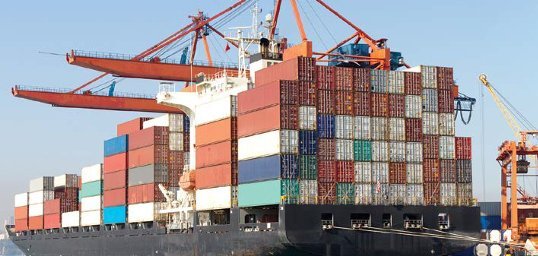 The United Arab Emirates (UAE) has now become an important global hub for the people in the Shipping Industry. To arrest a vessel is a statutory right of a claimant under the UAE Maritime Code No. 26 of 1981, as amended (The ‘Maritime Code’). It provides and regulates the arrest of vessels.
The United Arab Emirates (UAE) has now become an important global hub for the people in the Shipping Industry. To arrest a vessel is a statutory right of a claimant under the UAE Maritime Code No. 26 of 1981, as amended (The ‘Maritime Code’). It provides and regulates the arrest of vessels.
TYPES OF CLAIM UNDER “MARITIME DEBT” LISTED IN ARTICLE 115 OF THE UAE FEDERAL MARITIME LAW
(a) Damage caused by a vessel as a result of a collision or other accident.
(b) Loss of life or personal injury occasioned by a vessel and arising out of use thereof.
(c) Assistance and salvage.
(d) Contracts relating to the use or exploitation of the vessel under the charter party or otherwise.
(e) Contracts relating to the carriage of goods under charter party, bill of lading or other documents.
(f) Loss or damage to goods or luggage transported by a vessel.
(g) General average.
(h) Towage or pilotage of vessel.
(i) Supplies of product or equipment necessary for the use or maintenance of the vessel, in whichever place the supply is made.
(j) Building, repairing or supplying a vessel or dock dues.
(k) Sums expended by the masters, shippers, charterers or agents on account of the vessel or on account of the owner thereof.
(l) Wages of the master, officers and crew and other person working on board the vessel under a contract of maritime employment.
(m) Dispute over the vessel’s ownership.
(n) A dispute in connection with the co-ownership of the vessel. Or with the possession or use thereof, or with the right to the profits arising out of the use thereof.
(o) A maritime mortgage.
LOCUS STANDI OF THE CLAIMANT TO ARREST THROUGH POWER OF ATTORNEY
To arrest any vessel in UAE, the claimant shall provide a Power of Attorney (POA) to lawyers along with right of audience in the UAE Courts and if the said POA is executed abroad, it shall be notarized and regularized by the relevant Ministry of Foreign Affairs of the Country of execution and authenticated by the UAE Embassy in that Country. Further, upon its arrival in the UAE, the POA shall be further authenticated into Arabic. In fact, this could be lengthy process and in case of urgency, these procedures are always an impediment to complete the arrest process.
NO INTERNATIONAL CONVENTIONS APPLIES TO ARREST IN UAE
UAE is not a party to any International Conventions relating to arrest of ships. The arrest will be under the UAE Maritime Federal Law.
In this context, it is relevant to note that the UAE is not a signatory to the Hague Rules, Hague-Visby Rules, or the Hamburg Rules. The UAE has not expressed an interest in the Rotterdam Rules as well.
International Conventions that are expressly incorporated into bills of lading will only be given the force of law in UAE Courts, if a translated and certified copy of the convention is provided to the Court. In practice, this rarely happens due to expense of having conventions translated and certified.
 Whilst the UAE is not a signatory to the above conventions, the UAE Maritime Code borrows largely from the Hague-Visby Rules and relevantly incorporates, by way of example, the carrier’s obligation to exercise due diligence to make the vessel seaworthy, the Hague-Visby force majeure- type defences to the breach of the sea-worthiness obligation and package limitation.
Whilst the UAE is not a signatory to the above conventions, the UAE Maritime Code borrows largely from the Hague-Visby Rules and relevantly incorporates, by way of example, the carrier’s obligation to exercise due diligence to make the vessel seaworthy, the Hague-Visby force majeure- type defences to the breach of the sea-worthiness obligation and package limitation.
Joy Thattil
Maritime Lawyer & Partner @ Callidus Corporate & Maritime Consulting ( CCMC) Dubai & India
joy@calliduscmc.com